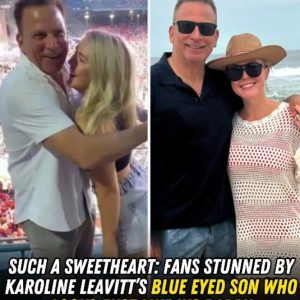I had no plans to move there. I just didn’t have a choice. My husband had died three weeks earlier, and the bills—his medical expenses, the funeral, the credit cards—had drained me dry. The rent was dirt cheap. Too cheap. It didn’t take long to see why.
The day I arrived, a man started crossing the street toward me—huge guy, linebacker-build, tattooed arms, shoes like microwaves. I froze. My heart dropped into my stomach. I tightened my grip on my purse like it could hide how terrified I was.
Then he spoke.
“You alright, ma’am?”
His voice was low but gentle. Not what I expected at all.
I hesitated, then gave the truth. “I don’t feel safe here.”
He looked around and nodded.
“I get that. Most people don’t. That’s why I stay out here—so folks like you don’t have to walk alone.”
Without asking, he took one of my bags. “Come on. I’ll walk with you.”
We said almost nothing on the way to my door. When we reached it, I finally asked, “Why do you do this?”
He shrugged, smiling faintly.
“Someone did it for my mom. Changed her life. Changed mine.”
Then he walked off before I could say anything more. I stood there blinking. For the first time since I moved, I didn’t feel completely alone.
That night, I opened the blinds a little wider.
The next morning, a small paper bag sat on my porch. A note written in soft handwriting said: “Fresh from Miss Anita’s—start with the peach scone.” Inside were three still-warm pastries.
No signature. But I already knew.
In the days that followed, I saw him everywhere. Helping an older man with groceries. Talking with teens who clearly looked up to him. Stepping in calmly during a fight outside the liquor store.
I asked the lady who ran the corner shop about him.
“Oh, that’s Marcus,”
she said.
“Lives with his little sister two blocks over. Been through hell.”
I asked gently, “What kind of hell?”
She leaned in a little. “Lost his dad young. Mom raised him and his sister. He got caught up with a bad crowd, but he turned it around. He’s in school now, works part-time at the rec center. Keeps this neighborhood from falling apart.”
That night, I wrapped up my only successful banana bread and brought it to the rec center. Marcus was outside talking to two boys. When he saw me, he stood.
“I figured it was you with the pastries,” I said, holding out the foil.
He grinned. “Busted.”
“It’s not fancy,” I said. “Just… thank you.”
He nodded. “That means a lot. Thanks for not assuming the worst.”
That was the beginning. We talked more after that. I was surprised to learn he was only twenty-eight—he carried himself like someone older. His sister, Leila, was seventeen and about to graduate. He worked during the day and studied at night.
One evening, he knocked on my door with a small toolbox.
“Saw your porch light flickering. Figured I’d fix it before it burned out.”
I didn’t argue. I made us tea. That became a pattern—he’d check in every few days, I’d cook something warm.
Then one night, I woke to shouting. A woman screamed from across the street. I peeked through the blinds. Two figures. One had a bottle in his hand. The woman looked terrified.
I called Marcus.
He answered instantly.
“There’s a fight across the street,” I said. “She’s scared.”
“Stay inside,”
he said.
“I’m coming.”
I watched him walk between them minutes later. Calm, steady. The man backed off. The woman cried.
The next morning, she was having coffee with Leila on Marcus’s porch.
He wasn’t just helping people—he was rebuilding the block.
Then, suddenly, he disappeared.
No texts. No calls. A day passed. Then two.
On the third day, Leila came by, her eyes red.
“He’s in the hospital,”
she whispered.
“Jumped coming home from class. They stole his phone and wallet. He fought back. They beat him bad.”
I felt sick.
The next day, I brought banana bread and flowers. His face was swollen. One arm in a sling. He still smiled.
“Turns out I’m not bulletproof,”
he rasped.
“Then take a break,” I said. “Let someone else handle things for now.”
He looked at me.
“Yeah… but who?”
That’s when I knew: me.
I started walking seniors to the store. Picking up trash at the park. Organizing a food drive for a family whose dad got laid off.
I wasn’t Marcus. But I could still show up.
People noticed. Teenagers lowered their music when they saw me. Tre started walking Miss Clara’s dog at night. Even the shy woman across the street brought soup when she heard Marcus was healing.
We were far from perfect. But we were trying.
Two months later, Marcus returned to the rec center. Moving slower. Still smiling.
“You turned this place around,”
he said.
“No,” I replied. “You did. I just kept it moving.”
That summer, we threw a block party. Music, food, laughter. Even the landlord showed up—said he’d replace the broken lamps and clean the graffiti.
Later that evening, Marcus and I sat on my porch. He had popsicles. I had iced tea.
“You know,” I told him, “when I first moved here, I was terrified.”
He nodded. “I remember.”
“But now… I feel like I belong.”
He smiled.
“That’s the goal.”
After a quiet pause, he said,
“My mom died five years ago. She used to say, ‘We’re not here just to survive. We’re here to leave it better than we found it.’”
I blinked away tears. “She’d be proud of you.”
He looked down at his melting popsicle.
“We’d make her proud.”
Time passed. Leila left for college. Tre applied to be a firefighter. Flowers bloomed at the corner store.
Then the landlord called.
“We’re lowering your rent by a hundred dollars,”
she said.
“What? Why?”
“Fewer complaints. More lease renewals. Just keep doing what you’re doing.”
Marcus jogged by as I hung up, still healing, but lighter.
“Hey!” I called. “You free Saturday?”
He slowed. “Why?”
“Thinking of hosting a sunflower workshop. The kids want to grow something.”
He grinned. “I’ll bring the shovels.”
Looking back, I never imagined the street that once felt so scary could become home.
But it did.
Maybe that’s the truth: sometimes, the places that scare us just need someone to stay. Not to fix them all at once—but to care. To plant something. To walk someone home.
If this story touched you, share it. Someone out there might just need the reminder—
Hope might be next door.





